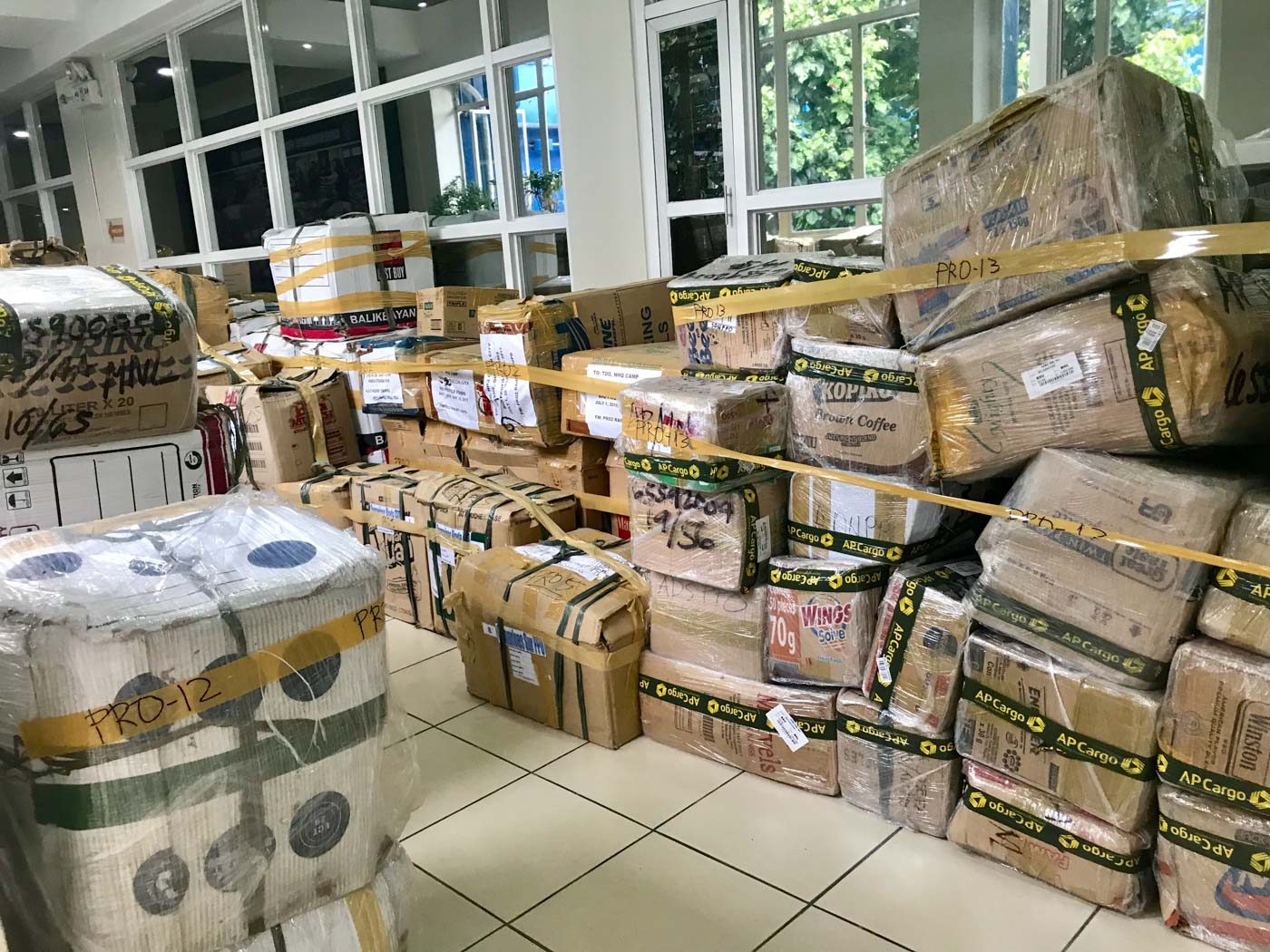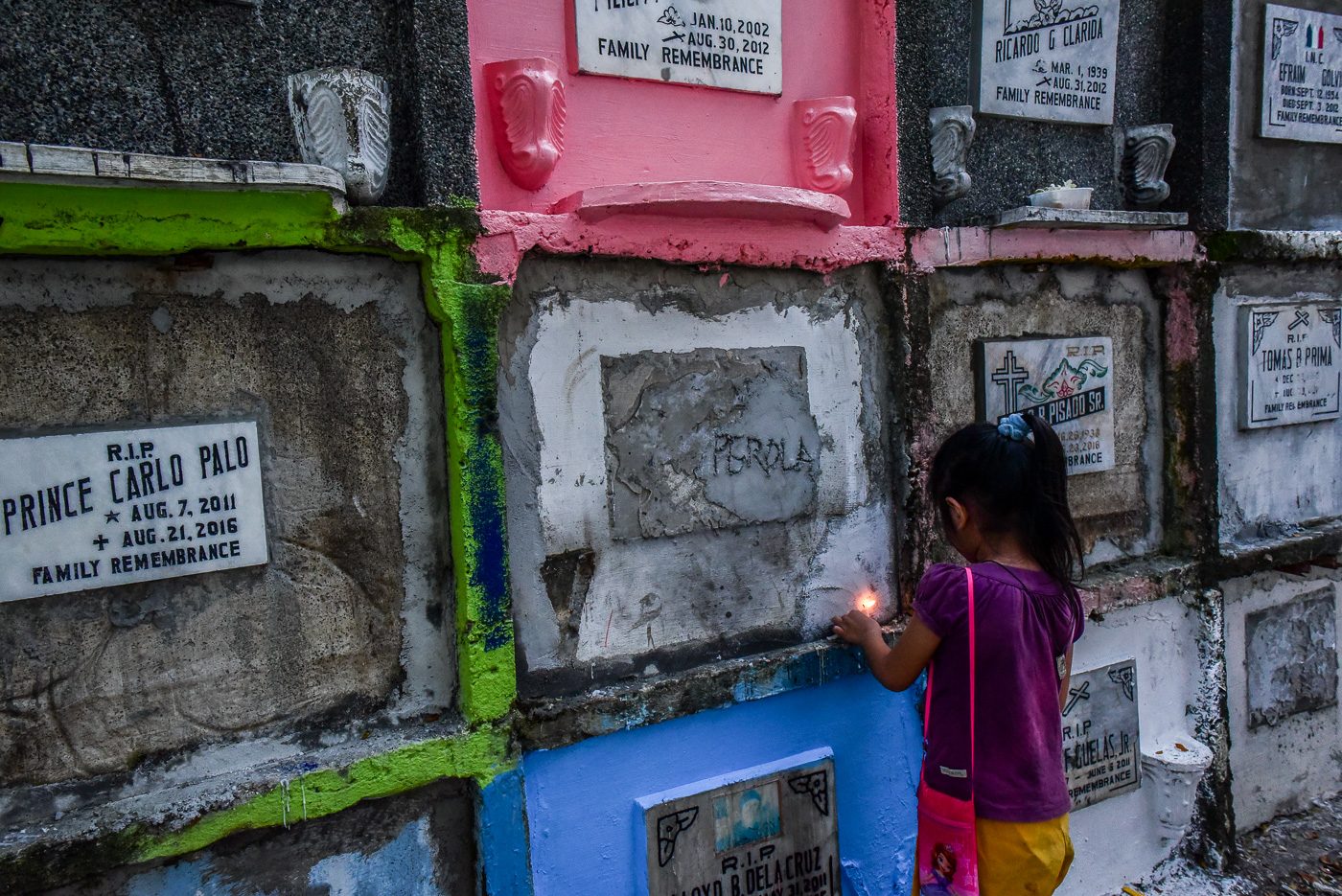SUMMARY
This is AI generated summarization, which may have errors. For context, always refer to the full article.

AT A GLANCE
- At least 4,729 suspects have been killed in anti-drug operations by the Philippine National Police as of May 2018, while human rights organizations estimate drug-related deaths at almost 20,000.
- The Commission on Human Rights has investigated 1,106 cases, but acknowledges that the number pales in comparison to the total drug war deaths.
- Lack of manpower and resources, as well as the low number of families going forward to file complaints, hamper investigations.
- Human rights lawyers and groups say support is vital so victims’ families understand they are not alone in the fight for justice.
MANILA, Philippines – The Commission on Human Rights (CHR) is striving to keep up with investigations as the death toll continues to rise two years into President Rodrigo Duterte’s anti-drug campaign.
Latest data obtained by Rappler show that since 2016, the CHR has handled 1,106 drug-related cases with 1,345 victims. Out of this number of cases, 594 stemmed from police operations, while 512 were vigilante-style killings. (READ: The Impunity Series)
CHR Spokesperson Jacqueline de Guia admitted their current case load does not represent even half of the reality on the ground, adding that the extrajudicial killings under the Duterte administration are “a new phenomenon” for the commission.
“If you are to compare the number of cases [the CHR is handling] to the entire situation, it really pales in comparison and we’re very much aware of that,” De Guia told Rappler. “In terms of rate and scale, we never did encounter this [many] killings.”
“Masyado na talagang marami (There are really a lot) and we cannot really cope with the sheer number of cases,” she added.
Anti-drug operations of the Philippine National Police (PNP) claimed the lives of 4,729 suspects between July 1, 2016 and May 15, 2018. But human rights groups estimate that drug war killings have reached almost 20,000. (READ: In the PH drug war, it’s likely EJK when…)
All in all, police documents show 33 people have been killed each day since Duterte became president in 2016.
The problem with the CHR setup
Created through the 1987 Philippine Constitution, the CHR is mandated to investigate alleged human rights abuses by state actors such as the military or police. (READ: Things to know: Human rights in the Philippines)
But the setup of the CHR as an institution and its lack of manpower hinder it from doing its job as efficiently as possible, especially given the magnitude of the anti-drug campaign, according to De Guia.
“The way we are set up as an institution is not really meant to be as responsive as law enforcement agencies are,” she explained.
Unlike in the case of the PNP which has a unit in each city or municipality, the CHR has to make do with regional offices, and only 7 to 10 investigators per region.
In response to the Philippine situation during the early months of the Duterte administration, the commission established a task force on extrajudicial killings. It also identified a focal person per region to ensure that investigations into extrajudicial killings move in their jurisdiction.
For major incidents, such as “one-time, big-time” operations by police which result in many casualties, the CHR activates a special composite team of investigators pulled in from various regional offices.
It doesn’t help that the PNP has so far failed to make good on its promise to efficiently cooperate with the CHR. In fact, police have not given case documents to aid CHR investigations despite several requests from the commission since 2016. (READ: Evading probes? The many times Duterte admin didn’t give drug war documents)
“Dati ang daling makakuha ng police reports tapos minsan hindi mo kailangan mag-subpoena o magbigay ng letter minsan. Ngayon, wala ka na makuhanan talaga,” De Guia said.
(It was so easy to get police reports before that we didn’t even have to issue subpoenas or send letters. Now, it’s so hard to obtain documents.)

Climate of fear, war on the poor
There are few families filing complaints over the deaths of their loved ones in the anti-drug campaign – another reason behind the low number of cases in the past two years.
According to latest data, 90% of the cases being handled by the CHR since 2016 are motu proprio, or investigations initiated by the commission itself. These incidents are monitored through media reports.
Unfortunately, however, leads sometimes go nowhere as relatives opt not to file a complaint, while some witnesses become uncooperative. The climate of fear hinders families from moving forward.
Filing complaints, according to Carlos Conde of Human Rights Watch (HRW), is already “an act of extreme self-sacrifice” as victims’ families expose themselves to danger.
In fact, the CHR’s help desk recorded a significant increase in the number of families seeking assistance when the anti-drug campaign was suspended.
“Meron talagang impact iyong climate of fear dahil takot sila kasi ang binabangga mo ay pulis. Nagtatanong raw kasi iyong mga pulis na kung saan gagamitin iyong mga documents na hinihingi ng family ng victims. Pahihirapan sila,” De Guia said.
(The climate of fear has an impact since victims’ families are afraid because they’re going against the police. The police often ask the families what they intend to do with the documents they’re asking for. They’re given a hard time.)
But Conde pointed out that victims, who come from lower-income groups, may already have been conditioned that the law will never favor them.
“The fact that many of them have run-ins with the law in the past discourages them from pursuing cases for fear of incriminating themselves, adding to their troubles,” he said. “I think the fear for physical safety is just a small part of the problem – the fear for the institutions of justice plays a larger role in all this.”

Intimidating legal process, lack of support system
Aside from the fear of retribution, the entire process of filing and pursuing a case is seen as intimidating. The legal fees, together with other expenses tied to going to and from courts, are too much for the poor.
Human rights lawyer Edre Olalia of the National Union of Peoples’ Lawyers (NUPL) pointed out that juggling a legal battle with daily life is not an easy task.
“The poor are preoccupied with sheer daily survival that they cannot afford the added hardship of dealing with a largely slow, tedious, complicated, and even skewed process,” he told Rappler.
This was echoed by De Guia, but she noted that the CHR has partnered with civil society groups to establish a support system for victims’ families.
The commission has also tapped several law organizations such as the Integrated Bar of the Philippines (IBP) for legal support, as well as the Balay Rehabilitation Center for psychosocial counseling.
The CHR, however, acknowledged that financial aid and other types of assistance during the course of investigation aren’t enough, adding that they’ve lacked post-investigation support.
“It’s a reality na hindi sapat iyong ibibigay na financial assistance namin kasi nawalan ang mga pamilya na ito ng income earner eh (It’s a reality that the financial assistance we give won’t be enough because these families lost an income earner),” De Guia explained.
It also does not help, she added, that other government agencies do not have any program to assist victims’ families aside from helping with burial expenses. (READ: The cost of dying in Duterte’s drug war)
“Ang dali sa amin na i-refer ang victims ng ibang violations sa other government agencies kasi may programa para sa kanila. Kaya lang wala talagang programa ang government para doon sa survivors ng extrajudicial killings, kaya nagkaroon ng gap,” De Guia said.
(It’s easy to refer victims of other violations to other government agencies because there are programs for them. But the government does not have a program for survivors of extrajudicial killings, that’s why there’s a gap.)
Olalia, meanwhile, said that the families should be made aware that they are not alone in the fight for justice.
“Educate them and assure them that credible individuals and groups are willing to help them see this through without anything in return but to seek justice,” he said. “[We need to] explain to them that what happened to them could happen to many others and that seeking justice for their kin is imperative to stop the madness and grief.”
Need for a law
Duterte is entering his 3rd year in office and the fight for accountability will still continue despite incidents seen as setbacks – including the Philippines’ planned withdrawal from the International Criminal Court. (READ: The year of deaths and denials in the drug war)
Seeking accountability, according to Conde, is very important as it will empower the victims’ families.
“If they see that the judicial system works, or that a police officer or suspect has been arrested, prosecuted, or convicted, they are more likely to come out and file complaints,” he said.
“Duterte himself has said that he is going to pardon anybody who is convicted, so the victims ask: What is the point of pursuing cases if the perpetrators are already assured of being pardoned even if assuming that their case would even go past the inquest phase?” Conde added.
Congress should also come up with a law that will further spell out and strengthen the punishment for those who commit extrajudicial killings, similar to the Anti-Enforced or Involuntary Disappearance Act and the Anti-Torture Act.
Until then, the CHR will have to make do with its current resources in a bid to ensure that the thousands of victims of what critics call “the worst human rights crisis since Martial Law” get justice – even if it may take a while. – Rappler.com
Add a comment
How does this make you feel?
There are no comments yet. Add your comment to start the conversation.